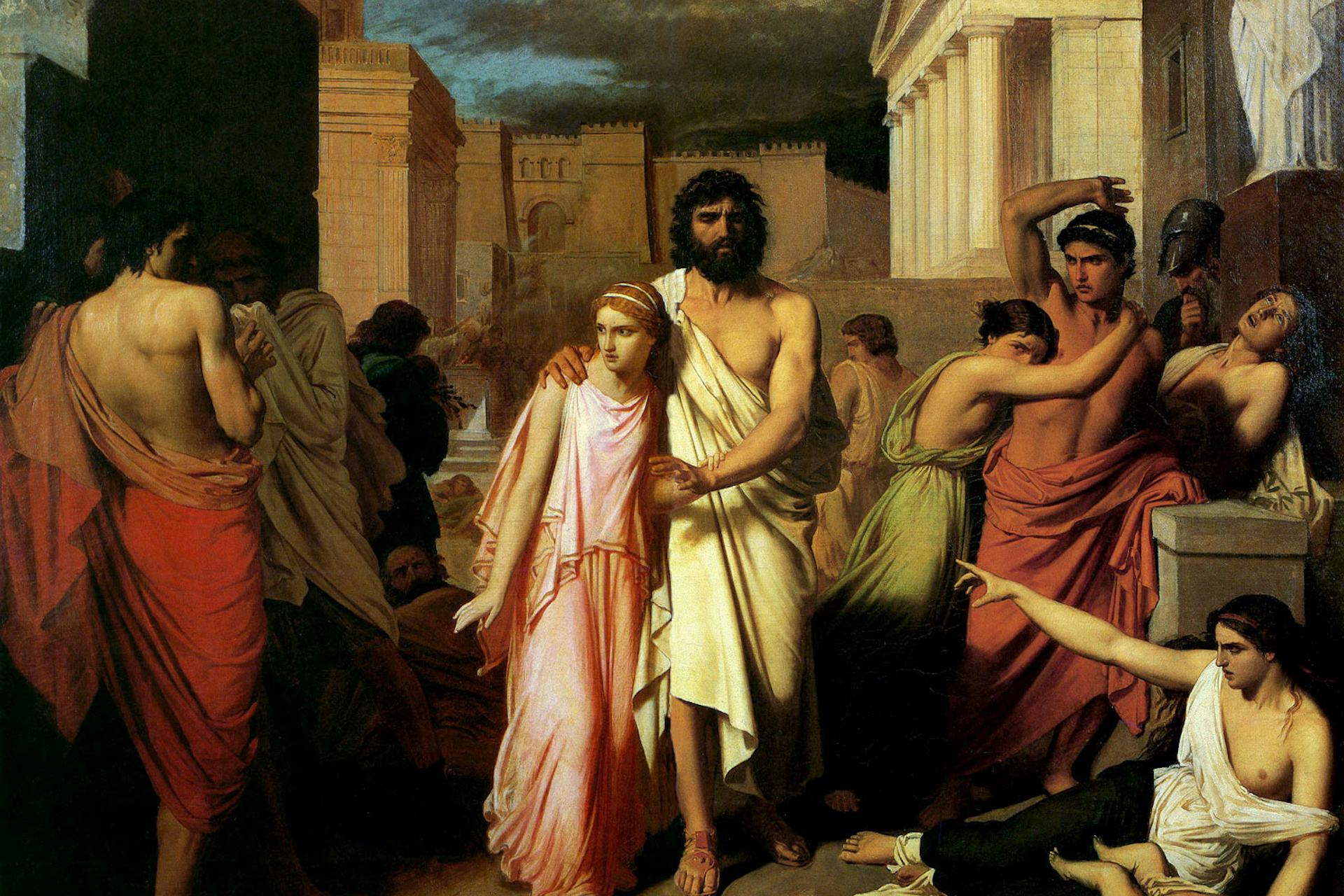Antigone

Oedipus and Antigone by Charles Jalabert (1842)
Museum of Fine Arts, MarseillesPublic DomainOverview
Antigone was one of the children of Oedipus and his mother Jocasta (or, in an older version, of Oedipus and Euryganea). She proved her piety by following her father Oedipus during his exile and taking care of him for years.
Later, Antigone defied her tyrannical uncle Creon by burying her traitorous brother Polynices when he was killed in the war of the Seven against Thebes. For this Creon sentenced her to death, even though she was engaged to his son Haemon.
The tragic myth of Antigone was popularized above all by Sophocles’ Antigone, but there were other versions of the story too (some of them quite different from Sophocles’). Today, Antigone—especially Sophocles’ version of the character—remains popular as a symbol of piety, filial devotion, and civil disobedience.[1]